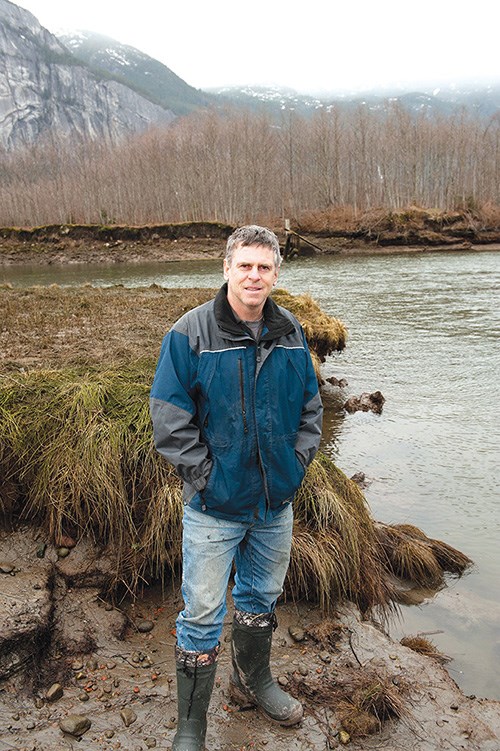The federal government is seeking public input for a review of the province’s professional reliance model, which sees private companies hire professionals, such as scientists and engineers, to conduct studies.
The provincial government uses the studies to approve or deny major projects that come before officials at the Environmental Assessment Office.
“The people of B.C. are entitled to a voice in how forests, minerals, metals, petroleum, fish and other natural resources are managed,” said Minister of Environment and Climate Change Strategy George Heyman in a news release.
“They need to have confidence that qualified professionals working within the professional reliance model are acting first and foremost to protect the public interest.”
The public engagement process asks citizens about the role of qualified professionals in the natural resource sector and will take contributions from the professionals themselves, associations and those using professional services for projects, according to the release.
Feedback will be considered along with findings from a review of current legislation and best practices.
Christine Gelowitz, a registered professional forester and the Association of BC Forest Professionals CEO said she welcomed the opportunity to strengthen the results-based professional reliance model.
“Effective oversight and monitoring of B.C.’s vast forests and natural resources is important to the people of B.C.,” Gelowitz said.
Squamish conservationist John Buchanan plans to submit years-worth of data for the review.
The amateur biologist spends most of his time on the waters and in the wilderness of Squamish collecting information, which he said is valuable to local environmental assessments.
“Right now we have a problem with the assessment procedure in B.C. and that’s clear,” Buchanan said. “This is why you have to go to other sources... to see whether the proponent is putting all their cards on the table.”
Buchanan used the examples of major projects where alternative data could have been helpful — one being the approvals for Woodfibre LNG.
Since 2010, he has been researching herring spawn near the Woodfibre site. The environmental assessment for a water-cooling plan — a plan that has since been dropped — said there were no herring within the zone necessary for the project to proceed. The study was based on Fisheries and Oceans Canada maps, said Buchanan.
He’s documented elk feeding on herring in front of the LNG facility. He sent the information to fisheries including video, but the maps were updated in 2015 without herring being shown.
“Woodfibre LNG did the right thing by using the [Fisheries and Oceans] data for the project,” he said. “The problem is the information is not up to date.”
Buchanan’s would like to see the dependence on private biologists for all Environmental Assessments be done away with.
“Our environment is at stake and we are making big mistakes,” Buchanan said.
After the public feedback process closes on Jan. 19, the government will analyze the results and make a summary report public expected by spring.
To submit feedback, go to engage.gov.bc.ca/professionalreliance/.
**Please note, this story has been updated since it was first posted to clarify that the provincial government, not the federal government is seeking public input.




